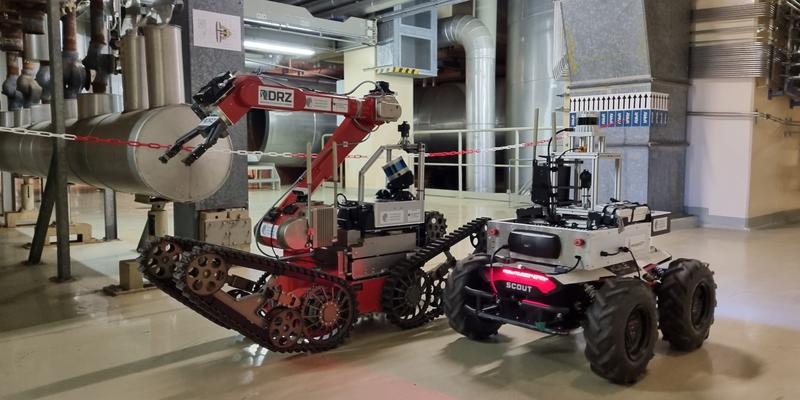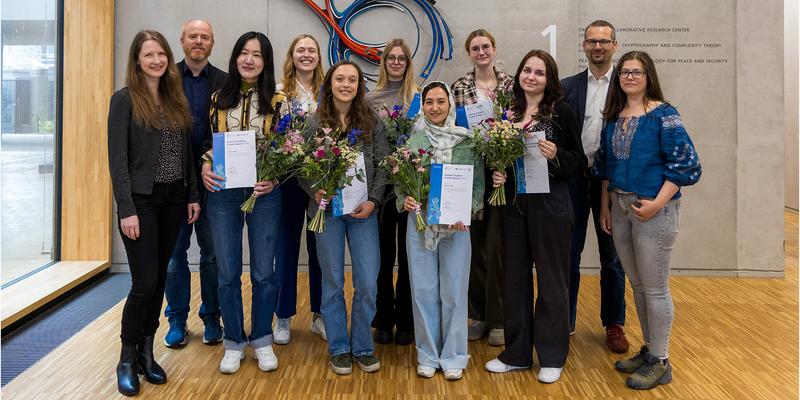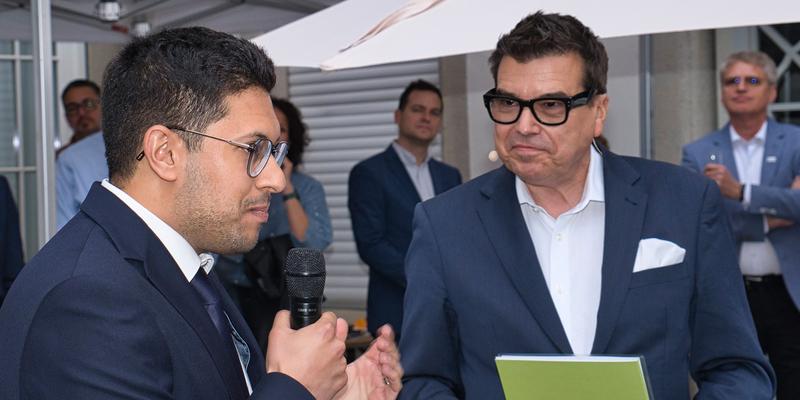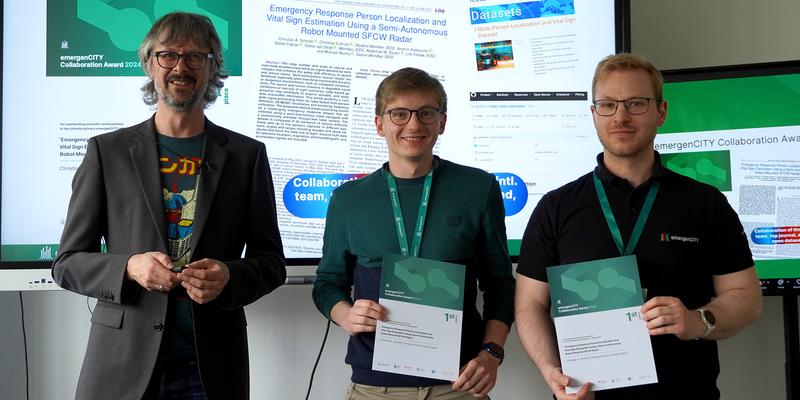The rescue robotics team Hector recently won two competitions: the European robotics competition EnRicH and the RoboCup German Open 2021.
Two first places at the robotics competition EnRich
At the robotics competition EnRicH, which was held for the third time at the Zwentendorf nuclear power plant in Austria, the team from Darmstadt took first place in both the 3D Mapping and Radiation Mapping categories. The competition tested the operational capability of the rescue robots in a nuclear emergency. The nuclear power plant in Austria was completed but never put into operation, making it an ideal test environment for the use of the rescue robots. Several radiation sources were placed on the first floor of the power plant during the competition. The robots’ task was to autonomously create a three-dimensional map of the building, as well as a map of the distribution of radiation intensity. In addition, based on the radiation map, valves were to be closed, and a missing worker was to be searched for and transported to a safe area. In contrast to previous years, the conditions of the competition were more demanding this year. While two years ago, for example, ramps made stairs and steps passable, these were now omitted and additional obstacles were placed instead. This increased the demands on the robustness of the navigation and the mobility of the robots.
Team Hector entered this year’s competition in cooperation with the German Center for Rescue Robotics (DRZ). The two ground robots DRZ Telemax and emergenCITY Scout were used. Telemax has a variable track drive and a precise manipulator arm and is available to Team Hector as part of the joint research project funded by the German Federal Ministry of Education and Research (BMBF) to establish the German Rescue Robotics Center. Scout, in turn, is a wheel-driven ground robot developed in the LOEWE center emergenCITY. Both robots are equipped with sensors as well as autonomy and assistance functions. Thus, data from lidar, inertial measurement system and 360° camera are fused to generate an accurate three-dimensional model of the environment in real time. An additional Geiger counter enabled the creation of the radiation map. During the competition, the two robots also cooperated with each other, with Scout transporting a radio repeater to allow Telemax to explore the back rooms of the floor where there was otherwise no radio communication.
The high quality of the three-dimensional geometric map and the radiation map created by the robots convinced the jury, so that Team Hector won first place in both the 3D Mapping and Radiation Mapping categories.
A video of both runs can be found here.
Victory at the RoboCup German Open 2021
Team Hector also scored points at the Robo Cup German Open 2021. After the team had already been successful at the international RoboCup in June with two Best in Class awards, the Darmstadt robotics team now also impressed in the German competition.
The competition consisted of a simulated accident in a chemical laboratory, during which the robots had to complete various challenging tasks, such as sealing a heated container, navigating through smoke, crossing obstacles or autonomously recognizing danger signs. Team Hector sent the robot Asterix into the race for this. Asterix is a track-based, highly mobile and modular ground robot with intelligent autonomous assistance functions for navigation and manipulation. With its mechatronic platform, it offers optimal conditions for the development of complex assistance and AI functions that facilitate the operation of the robot in stressful crisis situations. The robot was completely redeveloped by an interdisciplinary team of students from TU Darmstadt. The team is led by emergenCITY scientists Marius Schnaubelt and Professor Oskar von Stryk. In addition to the overall victory, the team also won the Best in Class-Autonomy award with Asterix.



